Exploring the Citizenship Process from Costa Rican Residency

Residency in Costa Rica has emerged as an attractive option for individuals and families seeking an improvement in their quality of life.
As a country renowned for being one of the happiest and most sustainable globally, according to the Happy Planet Index, Costa Rica offers a unique blend of natural beauty, mild climate, and rich culture.
To become a citizen, one must first establish residency, which can be temporary or permanent. We will explore the comprehensive journey from obtaining Costa Rican residency to achieving full citizenship, providing clarity on the process and requirements involved.
Understanding Costa Rica's Appeal for Potential Residents
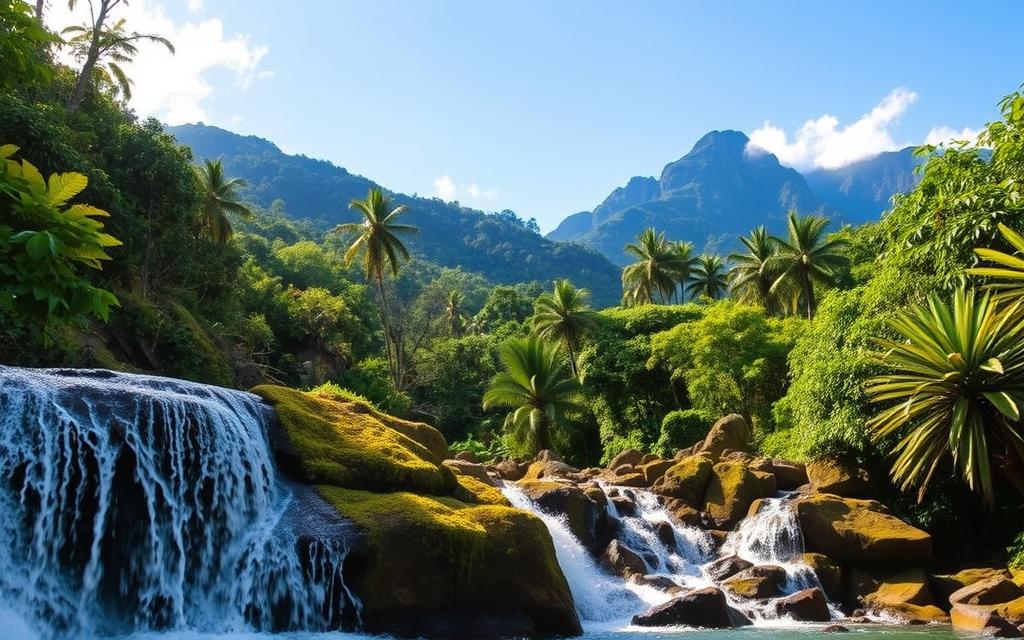
As a country known for its "Pura Vida" lifestyle, Costa Rica attracts individuals seeking a balanced and nature-appreciative way of living. The country's unique blend of natural beauty, political stability, and high quality of life makes it an ideal destination for expatriates and potential residents.
Natural Beauty and Quality of Life
Costa Rica is renowned for its lush rainforests, pristine beaches, and diverse ecosystems, contributing to an exceptional quality of life. The country's commitment to environmental sustainability has positioned it as a global leader in conservation, with approximately 25% of its territory protected as national parks or reserves. This focus on preserving natural resources not only enhances the quality of life for residents but also supports a balanced and healthy lifestyle.
Political Stability and Democratic Values
Costa Rica stands out as a prime destination due to its stable democratic government, having gone without a standing army for over 70 years. The country's political stability, combined with its strong commitment to education and social welfare programs, contributes to its high standard of living and social stability. For those considering immigration to Costa Rica, the country's democratic values and peaceful nature make it an attractive home.
Costa Rica Residency Options: The First Step Toward Citizenship
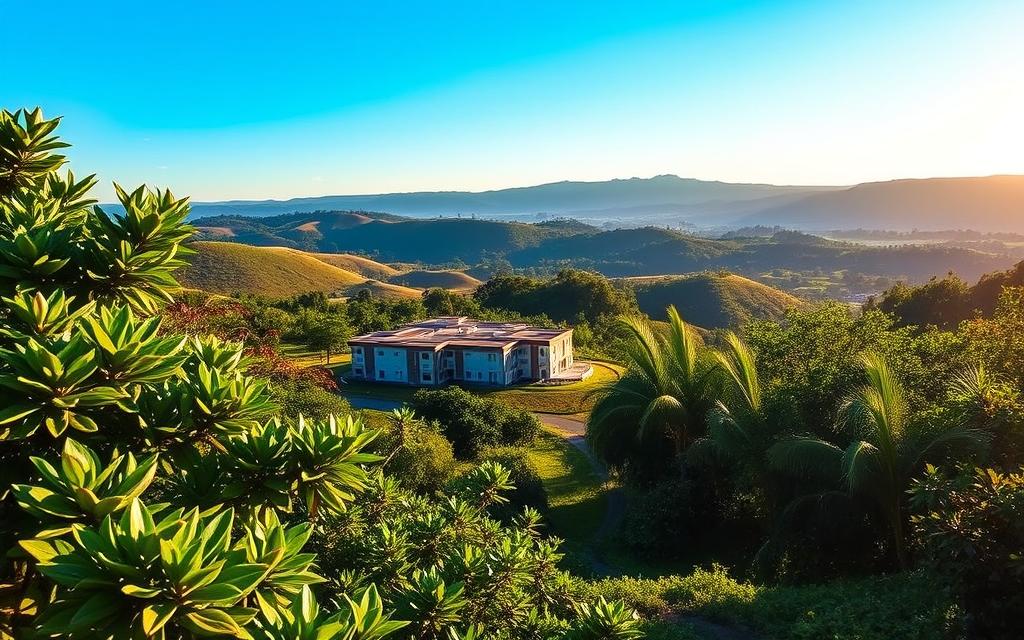
The journey to Costa Rican citizenship begins with choosing the right residency option. Costa Rica offers various paths to residency, each with its own set of requirements and benefits.
Pensionado Residency for Retirees
The Pensionado program is designed for retirees, requiring a permanent monthly income of at least $1,000 from a pension, retirement fund, or Social Security. Applicants must also have a clean criminal record and a valid passport.
Rentista Residency for Non-Retirees with Passive Income
For those not yet retired but with a steady passive income, the Rentista program is an option. It requires proof of $2,500 monthly income for at least two years or a $60,000 deposit in a Costa Rican bank.
Inversionista (Investor) Residency
The Inversionista program targets investors willing to make significant contributions to Costa Rica's economy. A minimum investment of $150,000 in a business, property, or government-approved project is required.
Digital Nomad Visa and Other Options
Costa Rica's Digital Nomad visa caters to remote workers with a stable income of at least $3,000/month for individuals or $4,000/month for families. This visa offers a temporary residency option for those with foreign income sources.
Understanding these residency options is crucial for a smooth path to potential citizenship. For more information on the next steps after obtaining residency, visit our guide on subsequent steps.
The Residency Application Process in Detail
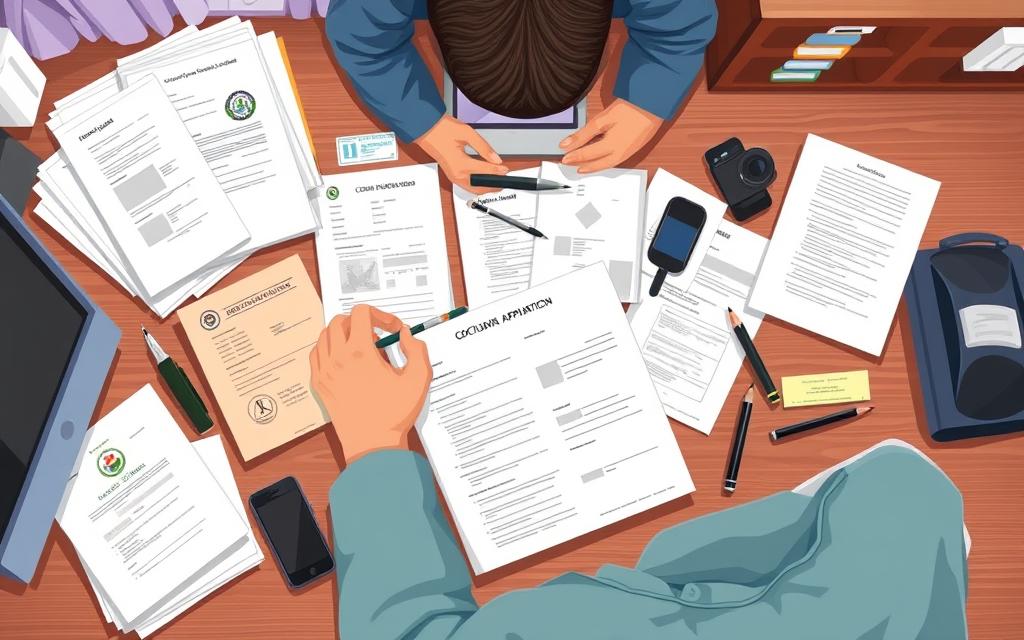
Applying for residency in Costa Rica requires careful preparation and attention to detail. The process involves several stages, starting with gathering required documents from your home country.
Document Collection and Authentication
The initial step in the residency application process is collecting essential documents, including a valid passport, birth certificate, marriage or divorce certificates, criminal background check, proof of income, and photos. Each document must be authenticated through apostille certification or consular authentication. Additionally, all documents need to be translated into Spanish by an official translator in Costa Rica.
Submitting Your Application in Costa Rica
Once your documents are ready, you'll need to submit your application to Costa Rica's immigration office, known as Dirección General de Migración y Extranjería (DGME). This involves scheduling an appointment, paying application fees, and providing biometric data such as fingerprints and photos. Upon submission, you'll receive a file number (expediente) and a receipt (comprobante) that serves as proof of your pending application status.
Navigating the Waiting Period
After submitting your application, the waiting period begins, which can range from 3 to 12 months depending on the residency category. It's crucial to remain in Costa Rica during this time or obtain special permission to leave to avoid application cancellation. Strategies for managing this period include temporary returns to your home country after initial submission to handle personal affairs while your application is being processed.
Can Residency in Costa Rica Lead to Citizenship Automatically?
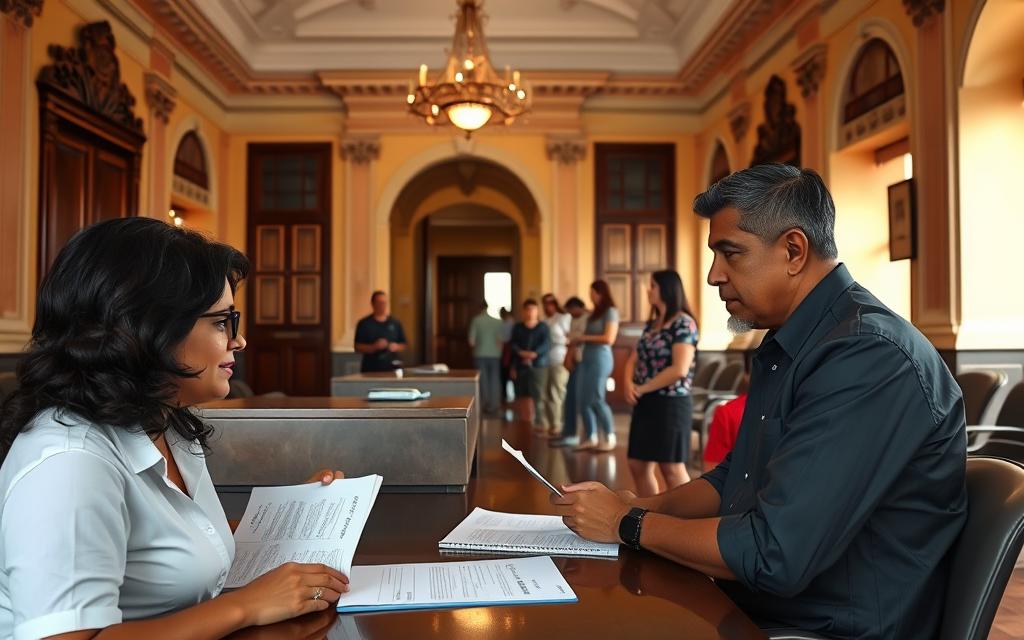
While residency is a prerequisite for citizenship, the process involves more than just holding a residency status. Many individuals assume that once they have residency, citizenship is an automatic next step. However, Costa Rican law makes a clear distinction between residency status and citizenship.
The Relationship Between Residency and Citizenship
Residency is a crucial step toward citizenship, but it doesn't directly convert to citizenship. The path from residency to citizenship requires meeting specific requirements, including maintaining legal residency status for a certain period. Costa Rica offers various residency categories, each with its own set of rules and benefits.
The residency journey typically involves progression from temporary to permanent residency, and eventually, to citizenship. Understanding this progression is key to navigating the system effectively.
Required Residency Period Before Citizenship Eligibility
To be eligible for citizenship, applicants typically must have maintained legal residency status for 7 years. This period is crucial, as it demonstrates an individual's commitment to integrating into Costa Rican society. The 7-year requirement is not just about the length of stay; it's also about demonstrating continuous residency without significant gaps and showing genuine ties to Costa Rica.
Applicants must also fulfill additional requirements, including passing a Spanish proficiency test and a civics exam, to qualify for citizenship. This ensures that future citizens have a good understanding of the country's culture, laws, and values.
Pathways to Costa Rican Citizenship
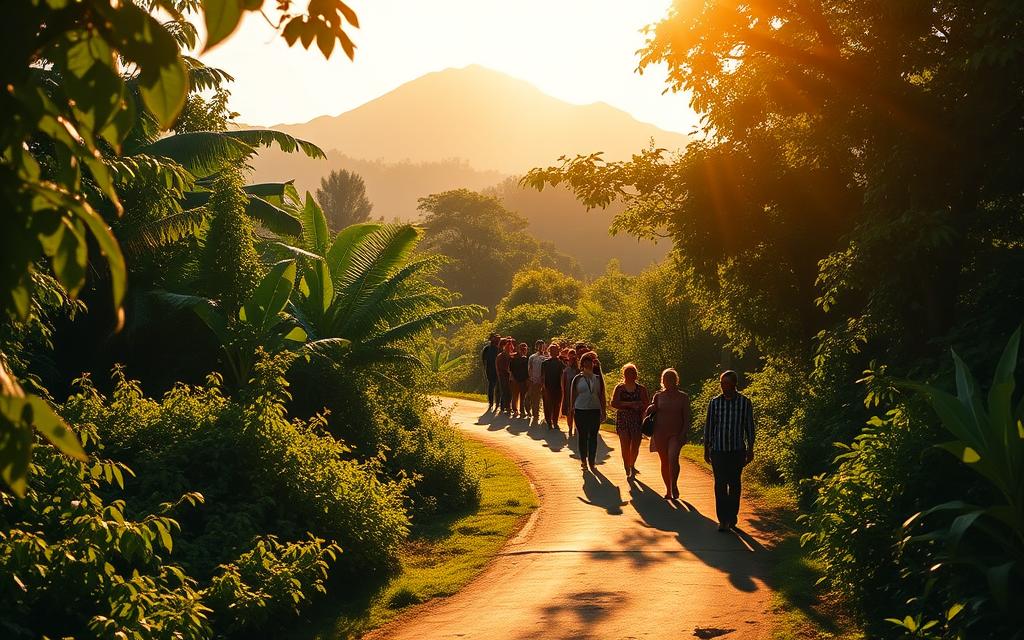
For those seeking to become Costa Rican citizens, there are several pathways to explore. Costa Rica offers a range of opportunities for individuals to obtain citizenship, each with its own set of requirements and benefits.
Citizenship Through Naturalization After Residency
Citizenship through naturalization is a common pathway, requiring individuals to reside in Costa Rica for a specified period, typically seven years. During this time, applicants must demonstrate their integration into Costa Rican society, pass language and cultural knowledge tests, and meet good conduct requirements. This process involves submitting an application with supporting documentation, attending interviews, and participating in a citizenship ceremony. For more detailed information on the residency process, you can explore our guide on Costa Rican residency and its relation to.
Citizenship Through Marriage to a Costa Rican
Marriage to a Costa Rican citizen offers a potentially expedited path to citizenship. After two years of marriage, spouses may be eligible for simplified naturalization procedures, though they must still demonstrate a genuine marital relationship and meet other naturalization requirements.
Citizenship Through Birth or Descent
Individuals born within Costa Rican territory or those born to Costa Rican parents are eligible for citizenship through birth or descent. This pathway involves providing documentation to prove eligibility, such as birth certificates and parental identification.
Understanding these pathways is crucial for strategic planning, as the choice of initial residency category can significantly impact the eventual route to citizenship. Each pathway has its advantages and potential challenges, and choosing the most suitable option depends on individual circumstances.
Requirements for Costa Rican Citizenship
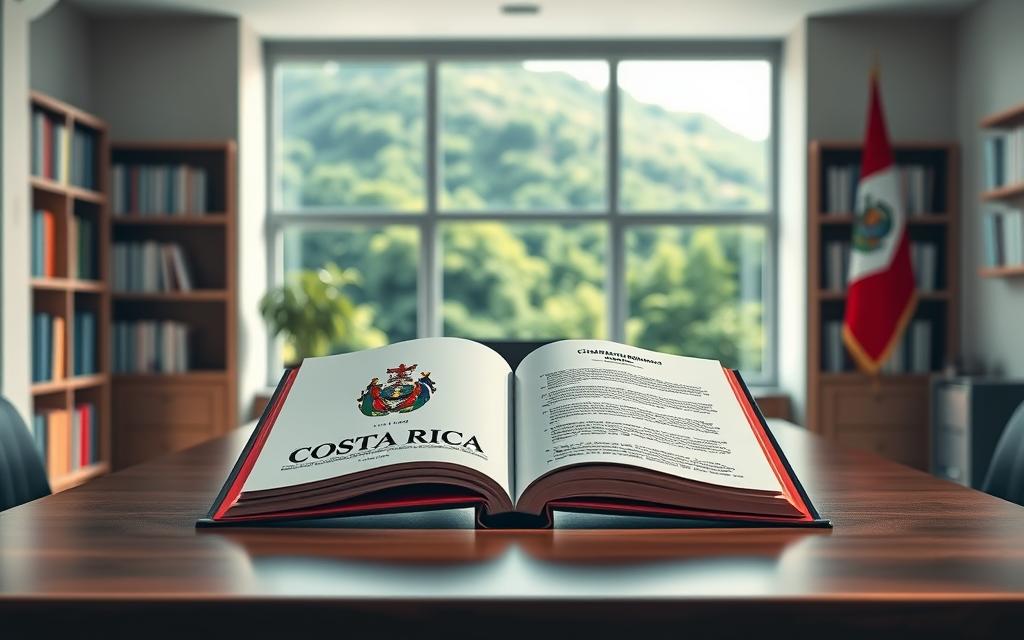
To become a Costa Rican citizen, applicants must fulfill several key requirements that go beyond simply maintaining residency status for the required period. These requirements are designed to ensure that new citizens are well-integrated into Costa Rican society and committed to its values and customs.
Language and Cultural Knowledge Tests
Applicants must demonstrate a good understanding of the Spanish language and Costa Rican culture through formal testing. The language proficiency test assesses an applicant's ability to communicate effectively in Spanish, while the cultural knowledge examination evaluates their understanding of Costa Rican history, government, traditions, and national symbols. For instance, applicants should be familiar with Costa Rica's democratic values, its rich biodiversity, and significant historical events.
Good Conduct and Background Checks
A critical aspect of the eligibility requirements is the background check. Applicants must provide a certificate of good conduct from both Costa Rica and their country of origin, ensuring a clean criminal record. For example, US residents must obtain anFBI background checkapostilled by the US Department of State. This step is crucial in verifying the applicant's good moral character.
Financial and Other Requirements
Applicants must also demonstrate economic solvency and have fulfilled all tax obligations in Costa Rica during their residency period. Furthermore, they must show genuine integration into Costa Rican society, which may include involvement in community activities, employment history, or other ties to the country. Understanding these requirements early in the residency process allows applicants to prepare adequately, such as beginning Spanish language study well before applying for citizenship.
The Citizenship Application Process

The journey to Costa Rican citizenship involves a thorough application process that requires careful preparation. We will guide you through the necessary steps to successfully navigate this process.
Document Preparation and Submission
Document preparation is a critical initial step in the citizenship application process. We must collect and authenticate numerous documents, including proof of residency, language proficiency certificates, and background checks. All documents must be translated into Spanish by certified translators, a process that typically takes 3-6 months.
Interview and Examination Process
After submitting our application, we will be required to attend an interview with the relevant authorities. This interview assesses our language ability, cultural knowledge, and genuine intention to become Costa Rican citizens. The examination component includes formal testing of Spanish language skills and understanding of Costa Rican history and cultural traditions.
Timeline and What to Expect
The citizenship application process typically takes 1-2 years after all required documents have been submitted. During this waiting period, we may be requested to provide additional documentation or attend follow-up interviews. We will discuss strategies for checking the application status through official channels.
Dual Citizenship Considerations for Foreigners
For foreigners, acquiring Costa Rican citizenship through dual nationality involves several key considerations. Costa Rica allows dual citizenship, making it an attractive option for individuals seeking to expand their global presence.
Costa Rica's Stance on Dual Nationality
Costa Rica fully recognizes dual citizenship, allowing naturalized citizens to maintain their original nationality without requiring renunciation. This policy makes Costa Rica an attractive destination for individuals seeking a second passport. The country's stance on dual nationality provides increased global mobility and flexibility for its citizens.
Implications for U.S. Citizens and Other Foreigners
For U.S. citizens, obtaining Costa Rican citizenship does not affect their American citizenship status. However, they must continue to comply with U.S. tax obligations, including filing tax returns and reporting foreign bank accounts. Dual citizens must navigate passport usage protocols and may face restrictions in certain government positions. To learn more about the specifics of dual citizenship for U.S. citizens, visit https://www.jaroscr.com/costa-rica-dual-citizenship-usa/.
It's essential for individuals considering dual citizenship to understand the tax implications, property rights, and voting privileges in both countries. By doing so, they can make informed decisions about their global citizenship and maximize the benefits of their new status.
Conclusion: Making Your Decision About Costa Rican Citizenship
The path to Costa Rican citizenship is a significant life decision that involves careful consideration of various factors, including lifestyle, family, and financial implications. Costa Rica offers a variety of residency options to suit different needs, such as rentista residency for those with stable income, investment residency for business investors, and permanent residency for long-term living.
Costa Rican citizenship is an attractive prospect, offering expanded rights, opportunities, and a permanent connection to the country. The journey requires patience and attention to detail but provides substantial benefits, including voting rights, unrestricted work permissions, and the security of a second passport. We encourage weighing these benefits against the requirements, including language proficiency and cultural integration.
Whether you choose to maintain permanent residency or pursue full citizenship, Costa Rica offers a welcoming environment. Consulting with immigration experts can ensure a smooth process, helping you make an informed decision about your future in this beautiful Central American nation.


